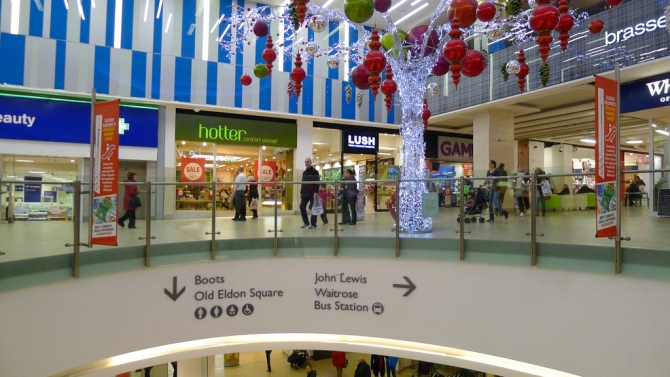Newcastle planners have been accused of condemning businesses in the city’s biggest retail centre to “a downward spiral of decline”.

The warning comes from Intu –which owns the city’s Eldon Square shopping centre (pictured) – in the face of plans to transform Newcastle’s East Pilgrim Street area into an £800m retail destination.
Speaking at a planning inquiry into plans for 30,000 new homes and urban development in Newcastle and Gateshead, an Intu representative told the Government inspector, Martin Pike, there was a real threat “for retailers to decamp into any East Pilgrim Street development, adversely affecting the historic city centre core”.
And, he added: “We have had similar plans and proposals in Nottingham and Stoke where we are active and they have harmed the city centre.
“We see voids start to appear in the high streets, traders not renewing long term leases, landlords putting off investing in their units and things become less active and it is because of this downward spiral.”
The national shopping centre owner warned there was a real danger of Newcastle City Council’s retail vision for East Pilgrim Street triggering less investment from tenants and landlords. While the regeneration of the area was an “admirable ambition” it said, “the council must be forced to show it will carry out an impact assessment before allowing new developments on the site”.
Defending its master plan for the city, the authority told the inquiry that any East Pilgrim Street development was a vital part of Newcastle’s growth and had been under consideration as far back as the mid-2000s.
In 2006, the authority announced it was finally set to move on the site and would be ready to start by 2010. Although the Bank of England building on the edge of the site has since been demolished no building work has started.
Two years later, in 2012, Newcastle secured Government backing for a City Deal investment plan which allowed it to grant the site accelerated development zone status. Even though this would let the council claim back some of its investment from increased local taxes generated on future site building, there has still been no significant progress.
Harvey Emms, one of the council’s senior development officers, informed the inspector the East Pilgrim Street plan was there to cement the city’s place in the region. “Newcastle’s role as the regional capital means it could absorb extra shops without impacting on existing trade,” he added. “Our nearest competing markets are in Leeds and Edinburgh and any additional high-end stores would only make Newcastle more attractive to shoppers.”
Previous Post
Commerzbank sells more than €5bn in Property Loans